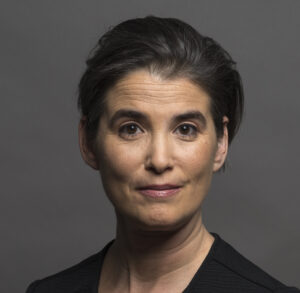by Kate Cohen, Music Studio student and Washington Post columnist
 (1) It’s OK to Be Bad at Something.
(1) It’s OK to Be Bad at Something.
I stink at playing the piano. I can give you reasons: I’m new to it; I’m too old to be new; I have these tiny useless pinkies that . . . Whatever. The reasons don’t change the fact that I stink, and I don’t like to stink. I like to be the best, and I typically avoid doing things I’m not so good at (math). But I am not the best at playing the piano. I am not the best in my house, where my two sons play music—dazzling, exciting, heart-breaking music—while I struggle to play notes. I am not the best in my class, even though everybody else in my class is an old beginner too. And yet . . . My friends still seem to like me. My teacher acts as if she’s pleased to see me every week. When I’m at the piano, my sons speak gently to me, as if to a frightened child, but away from the piano, they still assume I can help them with their homework (not math).
(2) Music Is Magic Anyone Can Make.
Before I started to learn the piano, I knew that Beethoven’s 9th was powerful. And “Hey Jude.” I knew the theme of Chariots of Fire makes you feel like the Olympics are within your grasp, and that those mawkish ballads you remember from prom still somehow slay you. But learning to play the piano has shown me that the power of music is so great, so tremblingly alive inside a silent piano or a charging iPod, that even a barely coordinated beginner can tap it. I had an inkling from watching my kids: at ages 5 and 7 they played a sloppy duet of “All You Need Is Love,” squabbling before and after, and they still came off as pint-sized geniuses because they more-or-less recreated something actual geniuses had written. But it wasn’t until I started to learn myself that I realized . . . all you have to do is gently press down middle C with your thumb and then, a solid second later, hit high C with your pinky, and “Over the Rainbow” materializes in your mind. That’s all it takes: two notes an octave apart and a song (and a mood, and a movie, and a memory of your mom) fills your head. A succession of tones organized in time is like a magic spell, and I—even I—can cast it.
(3) Practice Does Not Make Perfect, But It Helps.
I still find it miraculous that simply by doing something over and over you get better at it. Of course that’s obvious, but I’d forgotten. Most of the complicated physical tasks I perform—rolling out pie dough, say, or typing—I’ve performed for so many years I forget what it’s like to acquire a motor skill. It’s frustrating, but it’s a joy. From one practice session to the next, measure 7 of Amazing Grace gets smoother and smoother and less conscious and less like an exercise and more like a hymn.
(4) I Am Getting Old.
It takes me forever to learn to play a song. My brain is slow and my fingers are slower. I literally tell them what to do in sentences (“OK, when this thumb goes up, that one goes down. Ready . . .”). I’m putting off learning to use the pedal because I can’t imagine adding another limb to the confusion. But what really makes me feel old is recognizing that I don’t have enough time left in my life to get really good. It’s just too late to put in my 10,000 hours (the amount of time Malcolm Gladwell tells us it takes to acquire expertise). At half an hour a day, it will be 55 years (math!) before I become a great pianist. Come to my 95th birthday party and I’ll play something for you.
(5) Getting Old Might Not Be So Bad.
I’m sitting at the piano trying to get a few bars right. I’m going over them and over them, correcting a little each time, getting close to right, then falling back, then getting closer. Then playing them once perfectly. “Ha!” I say, triumphant, and I start again—eager to repeat the pleasure of that perfect sound—and then I really mess up. And then I start again. I am concentrating so hard everything else has fallen away: all that I am supposed to do today, all I haven’t managed to do yet this year. All that I wish I had done in my life, including starting lessons four decades ago. It could be 10 minutes into my practice or 45. I could be 45 years old or 25. Maybe I’m 80. I don’t know. But I do know where I am: I’m in these notes, I’m in this chord, in the middle of this song. What time is it? 3/4.